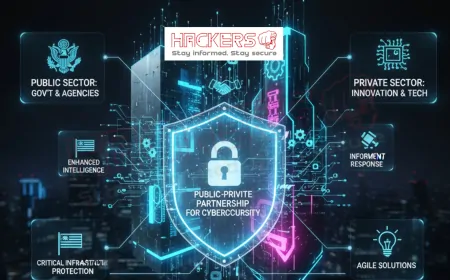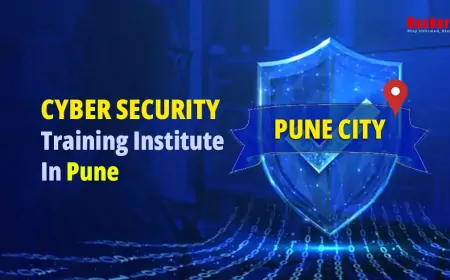Can Beginners Pass the CEH Exam Without Prior Experience?
Imagine you're scrolling through job listings in cybersecurity, and you keep seeing "CEH Certified" as a must-have. Your heart races a bit—could this be your ticket to a thrilling career in ethical hacking? But then doubt creeps in: You're a complete beginner with no tech background. Can someone like you really pass the Certified Ethical Hacker (CEH) exam without any prior experience? It's a question that plagues many aspiring cybersecurity pros. In this blog post, we'll dive deep into the realities, challenges, and strategies to help you decide if it's possible—and how to make it happen. Whether you're switching careers or just curious, stick around; you might be surprised by what beginners can achieve with the right approach.

Table of Contents
- What is the CEH Exam?
- Official Requirements for Taking the CEH Exam
- Challenges Beginners Face Without Experience
- Is It Possible for Beginners to Pass?
- Step-by-Step Preparation Guide for Beginners
- Essential Resources and Tools
- Comparing Study Methods: A Table Overview
- Real Success Stories from Beginners
- Common Mistakes to Avoid
- Pros and Cons of Pursuing CEH as a Beginner
- Conclusion
- FAQs
What is the CEH Exam?
The Certified Ethical Hacker (CEH) exam is a globally recognized certification offered by the EC-Council, an organization focused on cybersecurity training. Essentially, it teaches you how to think like a hacker but for good reasons. Ethical hackers, also known as white-hat hackers, use their skills to find vulnerabilities in systems before the bad guys do. The exam covers topics like reconnaissance (gathering information about a target), scanning networks, gaining access, maintaining access, and covering tracks.
Why is it popular? In a world where data breaches make headlines daily, companies need professionals who can protect their digital assets. Passing the CEH can open doors to roles like penetration tester, security analyst, or even cybersecurity consultant. But it's not just about the job prospects; it's about building a foundational understanding of how cyber threats work.
For beginners, the CEH might sound intimidating because it assumes some basic IT knowledge. However, the exam is multiple-choice and focuses more on concepts than hands-on coding. That said, you'll need to grasp terms like "footprinting" (collecting data about a target) and "social engineering" (tricking people into giving up information). Don't worry if these sound foreign we'll explain them as we go.
The exam itself is version-dependent, but the latest one (CEH v12) has 125 questions to be answered in four hours. You need a score of around 60-85% to pass, depending on the version. It's not impossible, but it requires dedication.
Official Requirements for Taking the CEH Exam
Officially, the EC-Council doesn't require prior experience to sit for the exam, but there's a catch. To get certified, you have two paths:
- Attend an official training course from an EC-Council accredited training center. This is the straightforward way for beginners, as it waives the experience requirement.
- Submit proof of at least two years of information security experience if you skip the training. This is verified through an application process.
For true beginners, the training route is ideal. These courses last about five days and cover all the exam topics. They're available online or in-person, making them accessible. Plus, the training often includes practice exams and labs to simulate real scenarios.
Beyond that, you'll need to pay the exam fee (around $1,199 if self-studying, or included in training packages) and agree to the EC-Council's code of ethics. No college degree is required, which is great news for career changers from non-tech fields like marketing or teaching.
Challenges Beginners Face Without Experience
Let's be honest: Jumping into CEH without any background isn't a walk in the park. One major hurdle is the technical terminology. Words like "TCP/IP" (a set of rules for how data travels over networks) or "vulnerability assessment" (checking systems for weaknesses) can feel overwhelming at first.
Another challenge is the hands-on aspect. While the exam is theoretical, understanding concepts often requires practicing in a safe environment, like virtual labs. Beginners might struggle to set up tools like Nmap (a network scanning tool) without guidance.
Time management is key too. If you're working full-time or have other commitments, carving out study time can be tough. The material is dense, covering 20 domains from cryptography (encoding data) to cloud computing security.
Finally, motivation dips are common. Without experience, you might question why you're learning about buffer overflows (a type of exploit where code overruns memory boundaries). But remember, every expert started as a beginner persistence pays off.
Is It Possible for Beginners to Pass?
Absolutely, yes! While experience helps, it's not a barrier. Many have passed CEH on their first try with zero background by following structured study plans. The key is treating it like learning a new language: Start with basics, practice daily, and immerse yourself.
Statistics show that with proper preparation, pass rates hover around 70-80% for trained candidates. Beginners who dedicate 3-6 months of consistent study often succeed. It's about building knowledge step by step, not innate talent.
Think of it this way: CEH is entry-level in cybersecurity certifications. It's designed to introduce concepts, not require mastery. If you're passionate and willing to learn, you're already halfway there.
Step-by-Step Preparation Guide for Beginners
Ready to dive in? Here's a beginner-friendly plan to prepare:
- Start with fundamentals: Spend the first month learning basic IT concepts. Free resources like Khan Academy's computer science section can help with networking basics.
- Enroll in official training: If budget allows, take the EC-Council's course. It provides structured learning and exam vouchers.
- Study the syllabus: Break down the 20 domains. Focus on high-weight areas like system hacking and web application security.
- Practice with labs: Use platforms like TryHackMe or HackTheBox for hands-on exercises. These simulate real hacking without legal risks.
- Take mock exams: Aim for 5-10 practice tests. Analyze wrong answers to plug knowledge gaps.
- Join communities: Forums like Reddit's r/CEH or LinkedIn groups offer tips and motivation from peers.
- Review regularly: Use flashcards for terms and concepts. Apps like Anki make this fun and effective.
This approach can take 200-300 hours, spread over months. Consistency beats cramming study 1-2 hours daily.
Essential Resources and Tools
To succeed, arm yourself with the right tools:
- Official CEH study guide: The EC-Council's book covers everything in detail.
- Online courses: Platforms like Udemy offer affordable CEH prep for under $20 during sales.
- Books: "CEH Certified Ethical Hacker All-in-One Exam Guide" by Matt Walker is beginner-friendly.
- Tools: Download Kali Linux (a free OS packed with hacking tools) and experiment in a virtual machine.
- Podcasts and YouTube: Channels like NetworkChuck explain concepts simply.
Budget tip: Start with free resources before investing in paid ones.
Comparing Study Methods: A Table Overview
| Study Method | Pros | Cons | Best For |
|---|---|---|---|
| Self-Study with Books | Flexible pace, low cost | Lacks interaction, easy to get stuck | Motivated beginners |
| Online Courses | Video explanations, quizzes | Can be pricey, variable quality | Visual learners |
| Bootcamps | Intensive, hands-on | Expensive, time-consuming | Quick passers |
| Study Groups | Peer support, diverse insights | Scheduling issues | Social learners |
Real Success Stories from Beginners
Take Sarah, a former teacher who passed CEH in four months. With no IT experience, she started with free YouTube tutorials and joined online forums. "It was tough, but breaking it into small goals helped," she says.
Then there's Mike, a retail worker who used Udemy courses. He practiced daily on virtual labs and aced the exam. "Experience isn't everything curiosity is," he shares.
These stories show that with grit, beginners can triumph. Online communities are full of similar tales, proving it's doable.
Common Mistakes to Avoid
Don't rush: Cramming leads to burnout. Space your learning.
Avoid skipping basics: Understand networking before advanced topics.
Neglect practice: Theory alone won't cut it do labs.
Ignore health: Study breaks prevent fatigue.
Pros and Cons of Pursuing CEH as a Beginner
Pros:
- Builds strong foundation
- Boosts resume
- Exciting field
Cons:
- Time investment
- Cost
- Initial frustration
Conclusion
In wrapping up, yes, beginners can absolutely pass the CEH exam without prior experience it's challenging but achievable with dedication, the right resources, and a solid plan. We've covered what CEH entails, the hurdles you'll face, preparation strategies, and even real stories of success. Remember, cybersecurity is a field where passion and persistence often outweigh starting points. If you're motivated, start small, stay consistent, and you'll be on your way to becoming a certified ethical hacker. Who knows? This could be the start of an amazing career. Good luck!
FAQs
What is the CEH exam?
The CEH, or Certified Ethical Hacker, is a certification that teaches you ethical hacking skills to identify and fix security vulnerabilities.
Do I need IT experience for CEH?
No, but some basic knowledge helps. Beginners can succeed with proper study.
How long does it take to prepare for CEH as a beginner?
Typically 3-6 months of consistent study, depending on your schedule.
What is the passing score for CEH?
It varies by version, but generally 60-85%.
Is CEH worth it for beginners?
Yes, it's a great entry into cybersecurity and enhances job prospects.
Can I self-study for CEH?
Yes, but you need two years of experience or official training to certify.
What topics are covered in CEH?
Reconnaissance, scanning, enumeration, vulnerability analysis, and more.
How much does the CEH exam cost?
Around $1,199, plus training if needed.
Are there free resources for CEH prep?
Yes, like YouTube channels, free trials on platforms, and EC-Council's basics.
What tools do I need for CEH practice?
Kali Linux, Nmap, Wireshark—mostly free and open-source.
Is CEH multiple-choice?
Yes, 125 questions in four hours.
Can I retake the CEH if I fail?
Yes, after a waiting period and additional fees.
Does CEH expire?
Yes, every three years; renew with continuing education.
What's the difference between CEH and CompTIA Security+?
CEH focuses on hacking techniques; Security+ is broader security basics.
Are there jobs for CEH beginners?
Yes, entry-level roles like junior analyst.
How do I find CEH study groups?
Reddit, Discord, or LinkedIn communities.
Is hands-on practice required?
Highly recommended for understanding concepts.
What if I'm from a non-tech background?
Many succeed; start with IT fundamentals.
Can CEH lead to higher certifications?
Yes, like OSCP or CISSP.
Is online training effective for CEH?
Yes, especially with interactive elements.
What's Your Reaction?










































































